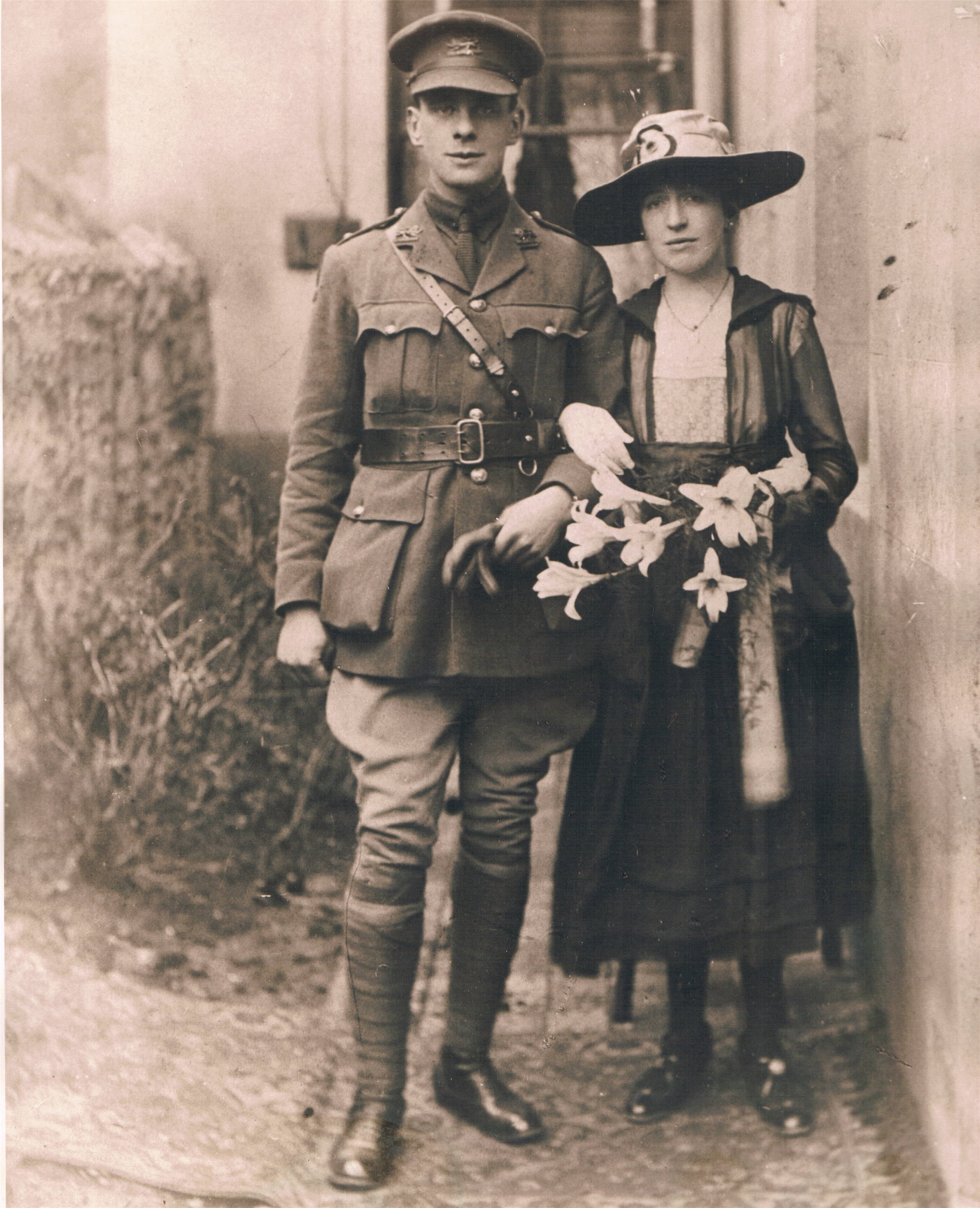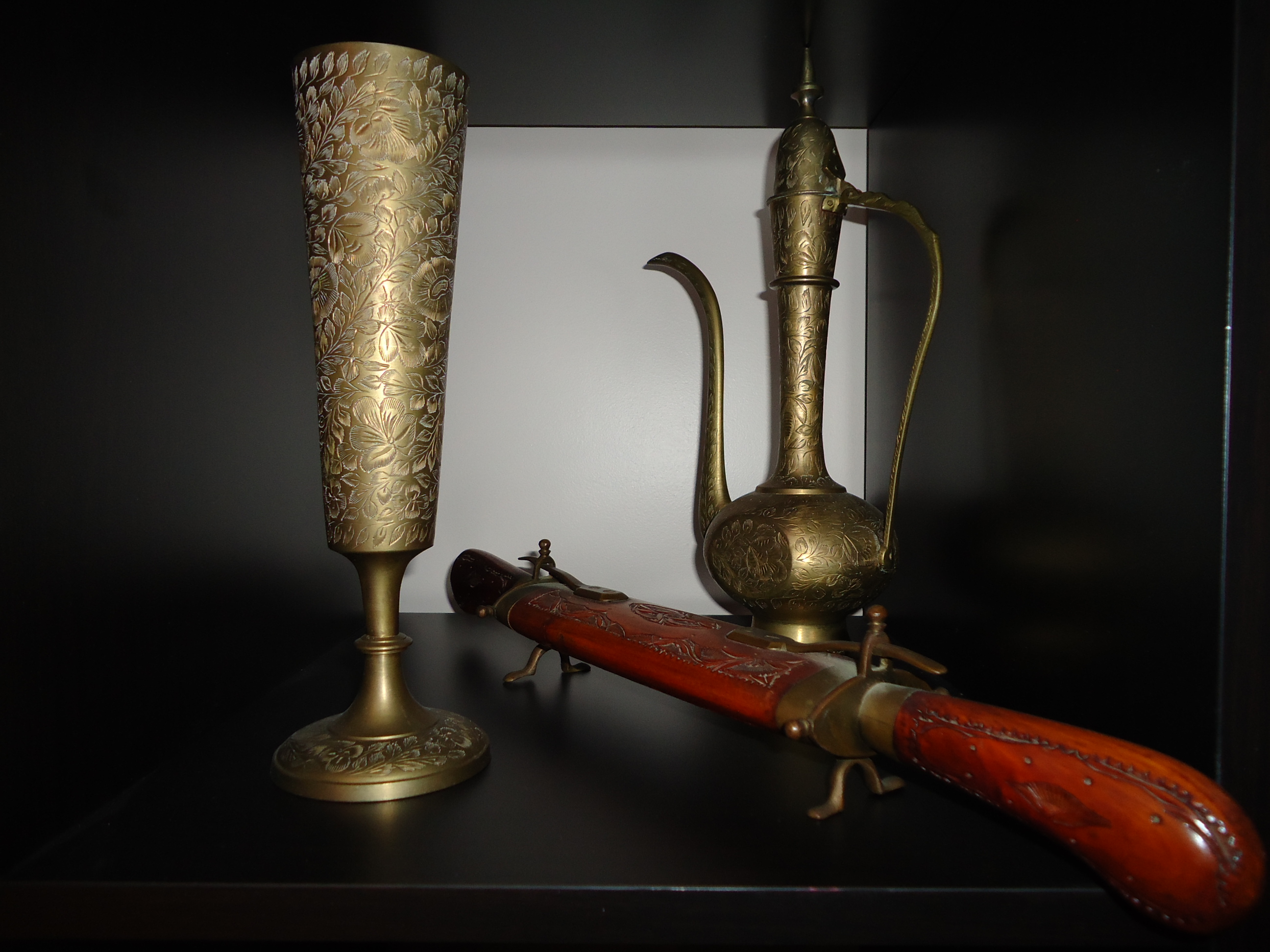Sometimes a genealogist finds a jackpot of information about an ancestor: photos, records, letters, memories. Most often we have only tantalizing clues with which to piece together the story of a life.
Such was the case with William Henry Bellamy, my husband’s maternal grandfather. All I knew starting out was that he:
- was born in England
- spent time in Burma during World War I
- ran a POW camp in Alberta during World War II
- lived in Niagara Falls during my husband’s growing up years (1950s).

We have this wedding photo of him with my husband’s grandmother, Dorothy Baston:
And we have these pieces, which we think may have come back with him from Burma:

That’s it… and yet, that’s quite a lot. Following these clues down the typical research avenues, I could look for specific facts about William and orienting myself to the times and places of his life:
- Ancestry.ca for census, birth and marriage information
- online searches for Burma (now Myanmar and independent from Britain since 1948) and for WWII POW camps in Canada (who knew!)
- contact with Uncle Jack, William’s son and my husband’s uncle.
This is what I think of as “Phase I” research, which scoops up the basic pieces of data about the person’s life and points to the more serious searching to be done.
Marriage records are treasure-chests of data: age, parents’ names, current address, occupation, and in William’s case, his rank and the name of his regiment in 1918: Second Lieutenant, The King’s Own Royal Lancaster.
The trouble with documents like this is they often contain, well… lies.
Which is what Uncle Jack confirmed, when he provided two major pieces of data: first, William’s birthdate was not what he claimed on the marriage record. Second, William ran away from home at age 15 and registered for the army under his mother’s maiden name, Mann.
This, of course, raised a whole barrage of questions for Phase II research: why did he fudge his age? Why did he run away? And how did he manage to go from William Mann to William Bellamy in the military?
The answers to ‘why’ and ‘how’ questions are always more fascinating than ‘what’ and ‘when’. And I think for the most part, clues to these answers are most often provided by those who knew the ancestor.
So, talk to your elders. They give great clues!
Great tip! I often wish I could go back and interview my grandparents – so many great stories they’d have to tell. Hope you find even more answers about William!